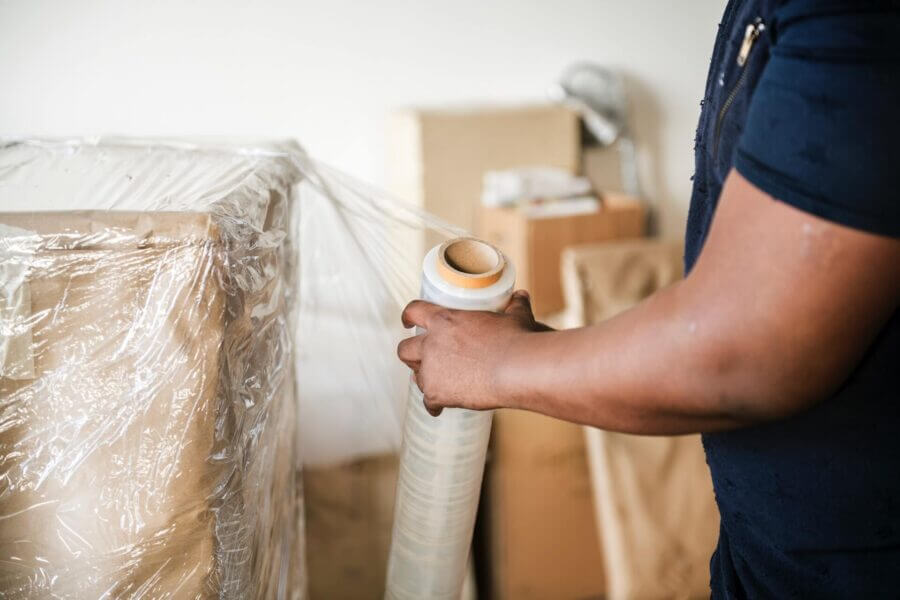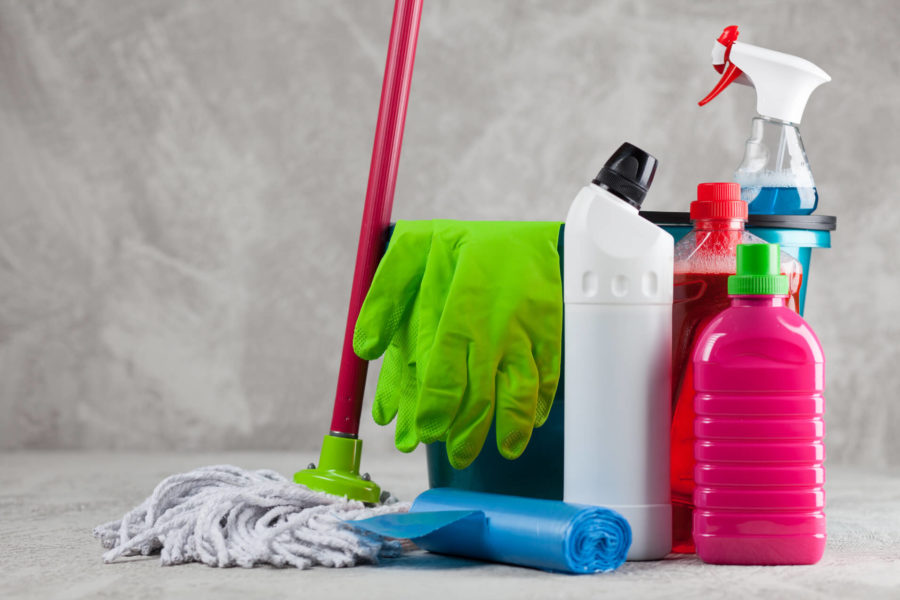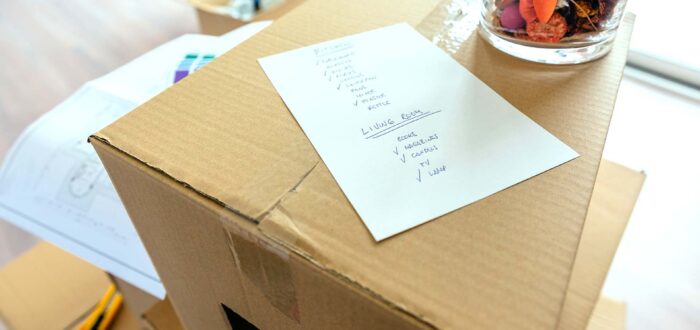

Best Tips on How to Survive Cross-Country Moving in the Rain
Posted in Moving Tips & Tricks on May 4, 2022
Most people set their relocation date weeks in advance, which makes predicting weather that far ahead almost impossible. Moving in the rain is not the most amazing relocating day scenario, but it can happen, and you should be prepared. How do you move out in the rain? Keep reading to find out the best tips for moving in the rain.
What if It Rains on Moving Day?
Let’s say you’ve been planning on relocating to a new state for weeks, and you’ve organized your move in advance. You’ve done everything on your move-out list to provide yourself with the smoothes relocation. But, you can’t always control everything, especially not the forecast and weather on your relocating day.
What if it rains? You will probably get anxious about relocating and start worrying about moving stuff in the rain. However, this is no reason to cancel your relocation. You’ve been working so hard on planning out the relocation, and you can still pull it off and move safely, even with the bad weather. So if you are worried about “Is it OK to move in the rain?” it absolutely is, especially if you apply some of the tips we are going to share with you in this article.
If You Are Going to Be Moving in the Rain, Make Sure Your Items Are Well Protected
Once you realize that you’ll have to deal with bad weather on your relocation day, you should first check how well your belongings are protected. This is not about keeping things from breaking but protecting stuff that can get seriously damaged from the water, like books or electronics.
When moving homes in the rain, forget about wrapping with packing paper, but rather use plastic materials. Here are some long-distance moving tips to use for protecting your belongings on rainy days:
- Wrap up everything in plastic or bubble wrap to prevent it from getting wet. If you’re packing a TV or some similar larger electronic, be sure to add extra layers of protective waterproof material.
- Replace cardboard boxes with plastic containers, and you can use them for packing clothes or even packing books.
- Cover your furniture in thicker comforters that can protect them from the water. Lay thick blankets over and around the furniture, and use some ropes or cords to secure them in place.
- Purchase some shrink wrap if you have time and if your relocation budget allows you to. Shrink wraps are worth investments, especially when you have some valuable pieces to transport that must not get damaged by water.
What Are the Free Alternative Materials to Use to Protect Your Items on a Rainy Day?
When preparing finances for relocation, most people save up money for the move but don’t always count on additional expenses. Some people don’t have a flexible budget and are not able to purchase all of the needed materials for protecting their belongings. However, even in these types of situations, there are alternatives.
Whether you want to keep your books from getting wet, save your jewelry from getting rusted, or protect your electronic devices from getting completely ruined – additional waterproof materials are required. So what can you use that you already have to lie around your home? Trash bags are a great option for protecting items from getting wet.
Most people have tons of plastic trash bags in their homes, and they can be used to wrap every item you want to keep away from the water. However, don’t forget to label each bag, since they all look alike, and you won’t be able to tell which has what in it. Labeling will help you big time once it’s time to unpack after the move.

Make Sure the Truck Is Secure and Not Leaking
Once you have all your belongings protected from getting wet, you need to ensure that the truck moving across the country is safe and not leaking anywhere. Before you start packing your relocating truck for the moving cross country, inspect the inside of it. Even if it’s safe and not leaking, consider protecting your boxes with some plastic coverings, just in case.
Map Out the Quickest Route From Your Front Door to the Moving Truck
It’s important to map out the route and which way you will be transporting your boxes from inside your home to the truck. Taking into account that it’s raining, you want that route to be as short as possible so your belongings aren’t exposed to rainfall for too long. You can consider relocating all of the boxes into the room closest to your driveway or the street, such as the garage.
Tips for Loading and Unloading Your Belongings
Whether you are loading and unloading the contents on your own or hiring cross-country movers, it’s useful to learn a few useful tricks. When it’s raining, it is much easier when you have a few people going from point A to point B. It’s also a useful trick to create an assembly line for the entire process.
A smart trick is to have one person carry boxes into the house from the garage or a drop-off point and then have someone pick up the containers and clean them. Setting up stations with specific tasks is a great tip and a great way to keep puddles and dirt away from your house. This way, people will also have less risk of getting hurt by slipping or falling and potentially getting injured.
This is why we always recommend unloading all of the containers in one specific area. It will be the place where you’ll be unloading everything first. Also, keep an eye on how strong the downpours are. If it’s a heavier one, consider loading and unloading durable belongings that are not easily damageable. If it’s a smaller one, then it’s time to carry delicate belongings.

Don’t Forget To Protect Yourself on the Rainy Day
When it starts raining on the relocation date, most people immediately start stressing about their belongings, the damage it will cause, and how to protect them. Somehow, people often forget to protect themselves. And one of the most common things people forget when relocating is purchasing protective, waterproof clothes for situations like this. Just like you wouldn’t forget about wearing a coat and gloves when relocating in winter, don’t forget about waterproof clothes for relocating during the rain.
Prepare Some Additional Pairs of Clothes to Change Once You Arrive in Your New Place
When preparing a new apartment checklist, don’t forget to put on a pair of fresh and dry clothes to get changed once you arrive at your destination. You should also consider having a relocating essentials bag filled with all of the items you’ll be needing once you arrive at the place. If you are not relocating on your own, consider putting important stuff from your family members in there as well.
What to Do in Case Some of the Boxes and Containers Get Wet
Sometimes you can manage to completely and successfully protect your belongings from getting in contact with water. But other times, you won’t be able to do that, and some of the packagings might need to be cleaned from the rainwater. You should wipe all of your containers with towels as soon as you put them inside your home. It’s good if you have an extra person to handle this task while others bring in the packages.
What if You’re Planning to Put the Belongings Into Storage?
Furniture and other delicate furnishings should not be left with standing water. You should keep this in mind if you are planning on placing some containers into storage units. For this, you will need to figure out how to protect items in storage. If you are not planning to store anything, start unpacking containers immediately after they arrive at your house so they don’t get damaged by the humidity inside.
In case some of your belongings get damaged from the humidity and get wet, they can still be fixed. Here’s a useful video that can help you with saving your books.
Preparing the Home for a Rainy Relocation
The house preparation hacks are useful for both of your homes: the one you’re relocating from, and the one you are relocating into. Both need to be protected and prepared for the relocation. The first step should be to protect the floors from the water. Start by putting a mat or an old rug in front of the doors so the workers, whether they are your friends or professional long-distance movers, can wipe their shoes.
If you have more mats and rugs, lay them out on the route in your house where the movers will be walking through. This will make managing the residue puddles and dirt much easier. You can also consider putting up a drying station in front of the door. The easiest way to achieve this is by putting up a small tent and leaving some towels and cotton materials for whipping underneath it. But, most certainly, you will need to do a thorough move-out cleaning after everything is done.

Do Moving Companies Move in the Rain?
Most long-distance moving companies work in different kinds of conditions and will never cancel their services because of bad weather. However, working during severe storms and seriously dangerous forecasts depend on the company’s policy, but you should not worry about this too much if your only problem is rainy weather.
Professional movers can be out of great help in times like this. Once you find out that the forecast might be bad on your relocation date, call the relocation company you choose and ask how they can help you. If you get packing services, they could bring you additional packaging materials, prepare their employees better, send more experienced workers, and help in lots of different ways. In this case, you are supposed to tip movers a bit more generously, taking into consideration they’ve been working under harsh conditions.
You can also talk to the company about relocating insurance in case you are worried that your items might get damaged. Any reliable company will be more than willing to solve any possible issues and problems you may have with some of their cross-country moving services. No matter what you are concerned about, just be sure to communicate the problem with the company and trust that they will do their job the best they can. Also, make sure to check their license on Better Business Bureau before hiring them, as this will allow you to avoid a potential relocation scam.
Now You’re Ready To Handle Even the Rainy Conditions
Is it good luck if it rains on your moving day? Maybe it is, and maybe it’s quite the opposite. However, with this article, and the tricks we provided you with today, you will at least be completely prepared for this situation. You may feel confident enough to handle everything on your own, or you may hire professional help. With hacks like these, not even raining clouds can scare you.





